Contributor Bit Wise reports:
Kweichow Moutai is best known for its 酱香 (literally “soy sauce flavored”) baijiu 白酒. But these days, the company is making the headlines with a semiconductor investment. Is this a brilliant diversification strategy, or has someone at headquarters been hitting the sauce a little too hard?
Just two months ago, after a stock downswing, an investment WeChat article urged investors to pivot from baijiu to semiconductors, claiming the market needs “real tech” 真科技, not “sauce-flavored tech” 酱香科技. Fast forward to today, and we’re seeing headlines proclaiming “sauce-flavored chips are here!” 酱香芯片来了 as Moutai crosses industry lines.
Let’s have a sober look at what’s behind these headlines.
What’s Moutai?
Moutai has high social status and is traditionally served in business or government settings. In 1972, then US President Richard Nixon and Chinese Premier Zhou Enlai toasted with Moutai. Henry Kissinger allegedly quipped, “If we drink enough Moutai, we can solve anything.”
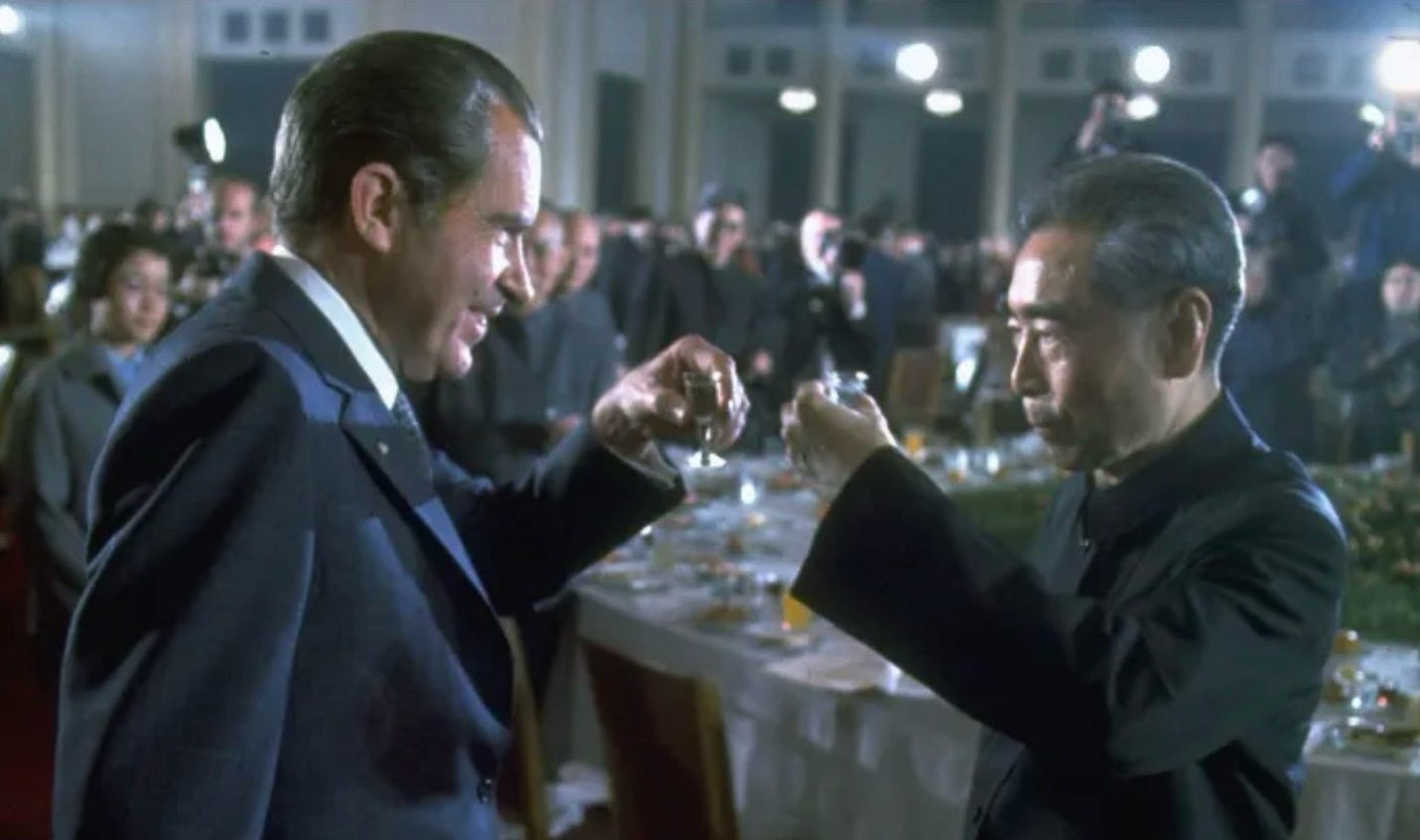
Of late, Moutai has been branching out from banquet halls with crossovers like the Moutai Latte at Luckin Coffee, or Moutai-flavored ice cream.
Chip investments? Seriously?
Moutai’s latest move isn’t a new beverage but an investment in semiconductor design start-up Shanghai SmartLogic 上海思朗科技有限公司. Its founder, Wang Donglin 王东琳, once served as director of the esteemed Institute of Automation at the Chinese Academy of Sciences. Born 1956, he was already in his sixties when he founded SmartLogic in 2016.
The investment comes from two industrial development funds, both set up by Moutai in 2023. The first, Moutai Science and Technology Innovation Investment Fund 茅台科创(北京)投资基金合伙企业, is fully owned by Moutai and made a miniscule investment of 15,000 RMB in SmartLogic.
The second, Moutai Goldstone Industry Development Fund 茅台金石(贵州)产业发展基金合伙企业, is a joint fund by Moutai and Goldstone Investment 金石投资有限公司, an investment firm under government-owned conglomerate CITIC Group 中信集团. This fund invested a more substantial amount — 221,000 RMB — in SmartLogic, even though it still accounts for only 1.6% of the start-up’s investment. Together, these funds invested about 236,000 RMB (~US$33,000) in SmartLogic — a minuscule sum by semiconductor industry standards.
The two funds combined, however, have a registered capital of 750 million RMB, and have made some more sizable investments in biotech and new energy companies — for instance, a 670,00 RMB bet in Guizhou-based battery tech start-up Jiagui Energy Technology 珈硅能源科技 and a 3.7 million RMB (~US$500k) one in synthetic biotech firm Hongmo Biotechnology 虹摹生物科技.
Four investments conducted by Moutai Science and Technology Innovation Investment Fund to date.
SmartLogic is actually not Moutai’s first venture into chips. In 2017, another Moutai fund participated in a Series B round for Daoyuan Technology 稻源科技, an edge AI chip startup.
Overall, these are tiny numbers for a firm with a $250 billion market cap. But these investments are more than just a ploy for headlines — they help illustrate broader trends for SOEs today.
What is the logic behind a liquor brand venturing into high-tech investments?
Some Chinese industry analysts link it to Moutai’s own needs. Since 2013, the company has embedded chips in its bottles for anti-counterfeiting purposes, creating a demand for high-quality security chips. But this alone doesn’t justify investing in a chip-design startup.
There is little official explanation on specific investments. When establishing the two industrial development funds in 2023, they expressed hope to “enhance scientific and technological innovation capabilities” and “provide more abundant financial support for technological achievements moving towards marketization.”
How does this make any sense?
To better understand Moutai’s business logic, it is crucial to recognize that it is an SOE (state-owned enterprise), majority-owned (60.82%) by the Guizhou provincial government.
Making investments in seemingly unrelated businesses is nothing abnormal for SOEs. Moutai has set up its own investment arm in 2014, initially focusing on consumer goods.
But as the government pays increasing attention to high-tech industries, incentives for local governments are shifting. Demonstrating commitment to innovation trumps economic development. In an age where Xi Jinping bans extravagant party banquets and instead pushes a tech self-reliance narrative at every opportunity, alcohol and consumer goods don’t look good. But semiconductor design investments do.
In turn, incentives for local SOEs are shifting in the same direction as well. SOEs undergo a plethora of evaluations by their responsible government department, with science and technology playing an increasingly crucial role. Tech-focused investment funds boost scores in these assessments. While private companies are primarily driven by profits, these evaluations play a more crucial role in SOEs. For instance, managers’ promotion may hinge on strong annual evaluations.
Guess who was ranked No. 1 in tech-innovation assessments among all Guizhou provincial SOEs in 2022 and 2023? Kweichow Moutai!
While the sub-funds of Moutai’s investment arm initially focused on consumer goods, most sub-funds established in the past few years focus on high-tech industries.
Selection of Moutai investment funds set up from 2023-24. Many of their names suggest a focus on high-tech industries and pay lip service to the latest political slogans, such as the “High-Quality Growth Fund” 茅台(贵州)高质量成长股权投资合伙企业.
Such incentive structures can lead to herding behavior where the center shouts “chips” and everyone invests in chips. Look at the discourse around “new-quality productive forces” 新质生产力, a term encapsulating Beijing’s tech-powered economic ambitions. Soon after Xi first mentioned it in September 2023, every local government and SOE rushed to adopt the concept.
Everything became a new-quality productive force — including liquor. The local Industry and Commerce Bureau in the town where Moutai is located told state media that it would “promote the digital and smart upgrading of the ‘sauce-flavored’ baijiu industry to accelerate the cultivation of new quality productive forces” 积极推动酱酒产业数字化、智能化升级,加快培育新质生产力. At the Two Sessions in spring 2024, liquor SOE bosses proclaimed their supposed contributions to China’s tech self-reliance, and highlighted the need for “cultivating and strengthening Baijiu new-quality productive forces” 培育壮大白酒新质生产力.
The absurdity wasn’t lost on policymakers, and official discourse tried to dial down. Xi Jinping urged everyone to “guard against rushing in and creating bubbles” and to instead just “selectively promote the development of new industries, new models, and new growth drivers.” Party-state media published a flood of op-eds warning of irrational investments.
Is Moutai’s chip euphoria all misguided?
There is still a certain logic behind all this.
Beijing has recognized the reality that SOEs are not the most innovative firms. Some of them, however, have lots of cash. For around a decade, the new mantra is for SOEs to move from being “asset managers” 管资产 to “capital managers” 管资本.
In 2023, a high-level meeting by China’s state-owned capital administrators called to
promote the concentration of state-owned capital in forward-looking strategic emerging industries, and serve well as “long-term capital,” “patient capital,” and “strategic capital.”
推动国有资本向前瞻性战略性新兴产业集中,当好“长期资本”“耐心资本”“战略资本”
Hard tech investments require “patient capital,” and Moutai has barrels of that. It is the world’s most valuable spirits company. As of 2023, it had cash reserves of over 150 billion RMB (~US$21 billion), and its revenue is only growing. Further, most of Moutai’s tech investment funds are set up as “limited partnerships,” suggesting that the actual investment decisions are outsourced to professional investors.
Channeling some of this money to strategic industries is precisely how the center imagines SOEs to inject “patient capital” into its tech ecosystem. The government is surely hoping that Moutai orders far more rounds than its token investments we’ve discussed here.
The bigger debate
The size of Moutai’s chip investment is relatively small. Though not significant news for China’s semiconductor design industry, it plays to a deeper debate central to the future of China’s political economy: what role can “undesirable” industries (alcohol, social media, online gaming) play in an economy increasingly focused on national strategic priorities?
A 2018 state media op-ed argued that pitting these industries against each other is counterproductive. Instead, profits from “undesirable” sectors could fund strategic industries.
The development of shared bicycles, food delivery, and Moutai not only doesn’t conflict with the development of the chip industry, but can actually provide momentum for it. Using these industries as “scapegoats” for the lag in chip development is illogical.
…
Maotai is a consumer good, and economic growth is inseparable from consumption. Shared bicycles and food delivery, these new business forms and models, bring more convenience to people, stimulate more consumption, boost economic development, increase tax revenue, and only then does the state have money to support the chip industry.
Don’t expect these debates to be resolved any time soon.
Alcohol is also not the only drug whose sales revenue fuels China’s tech modernization. China Tobacco 中国烟草, controlling 96% of domestic cigarette sales, is effectively part of the Ministry of Industry and Information Technology — the same ministry overseeing China’s largest chip fund.
Perhaps Deng Xiaoping’s famous saying — “it doesn’t matter whether a cat is white or black, as long as it catches mice” — needs a modern update: “It doesn’t matter if profits come from baijiu or cigarettes, as long as they fund semiconductors”?
Time will tell if Moutai’s “sauce-flavored” investments will yield a successful blend or leave a bitter aftertaste.

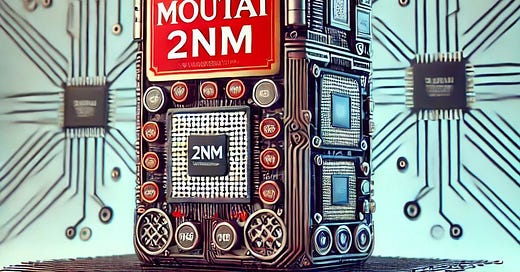

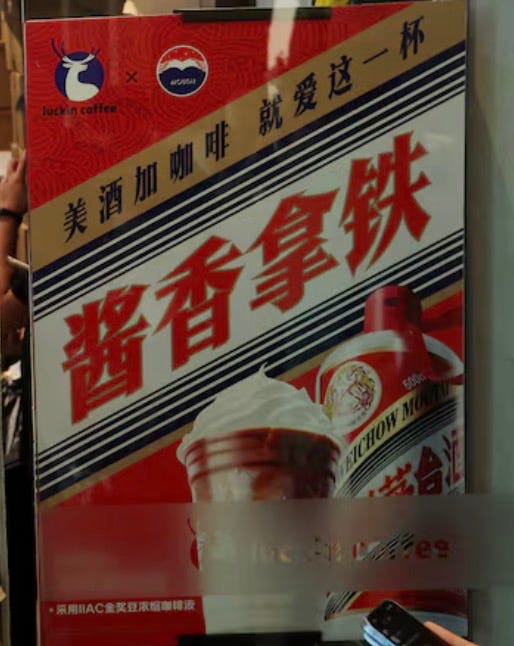

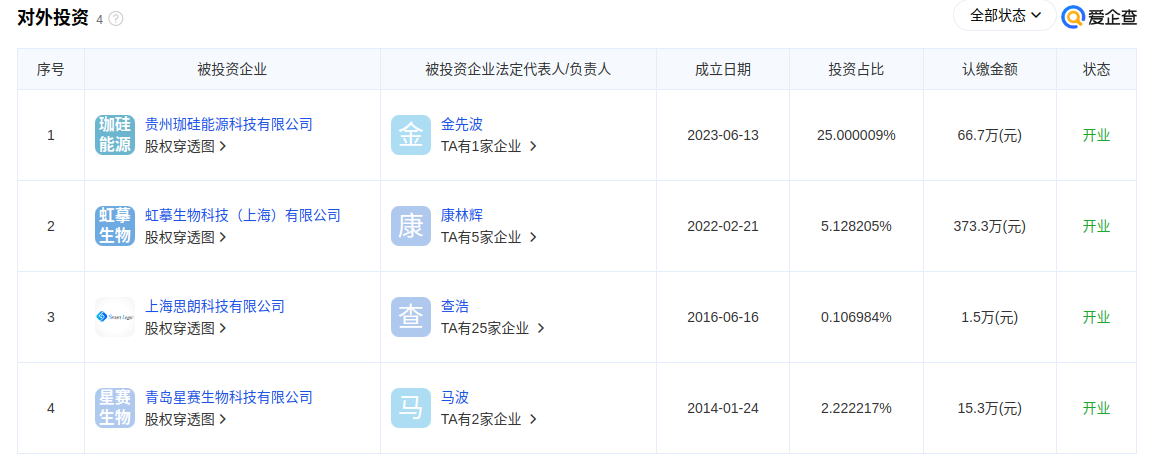
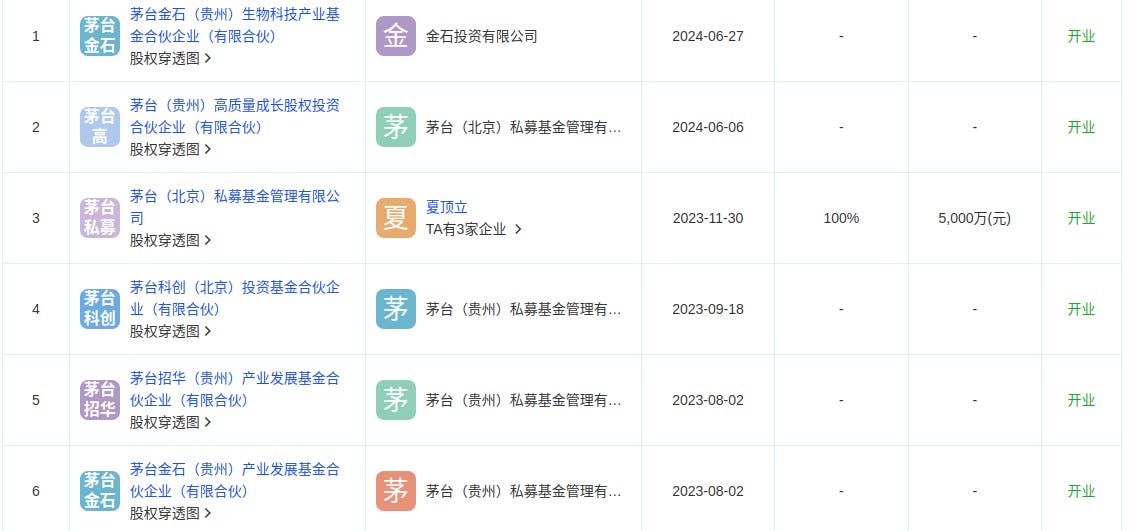

Reminds me of the fact that J. R. Simplot, the potato magnate, invested in another “chip” business in the 1980s: Micron.
Cheers to profits from “undesirable”, but economically efficient sectors,to fund strategic industries A peculiarly innovative idea.